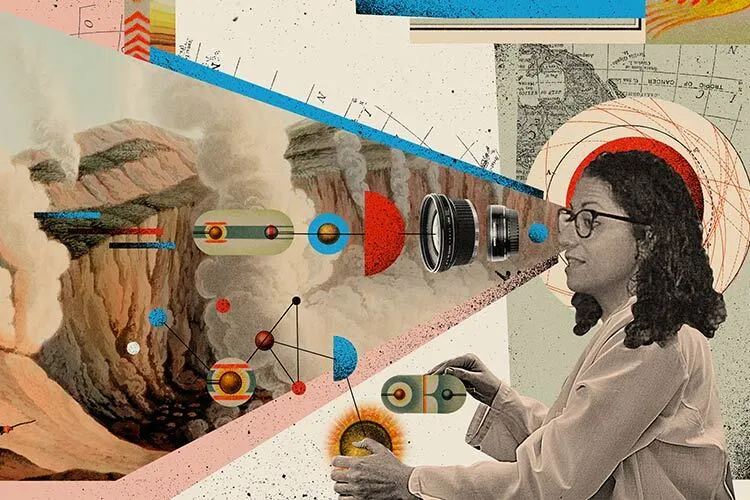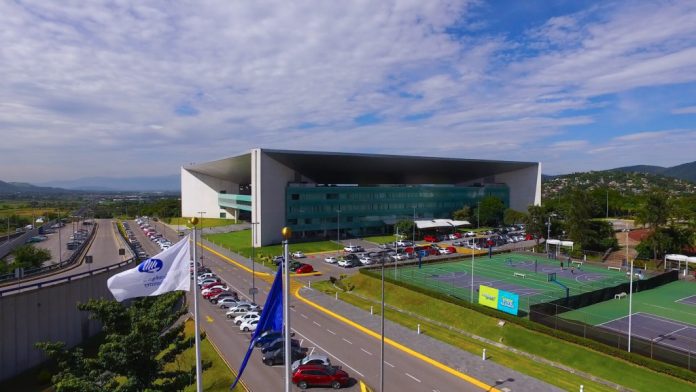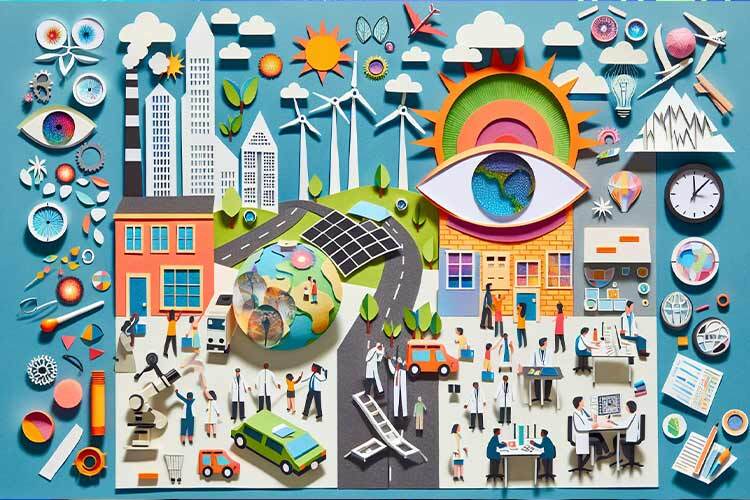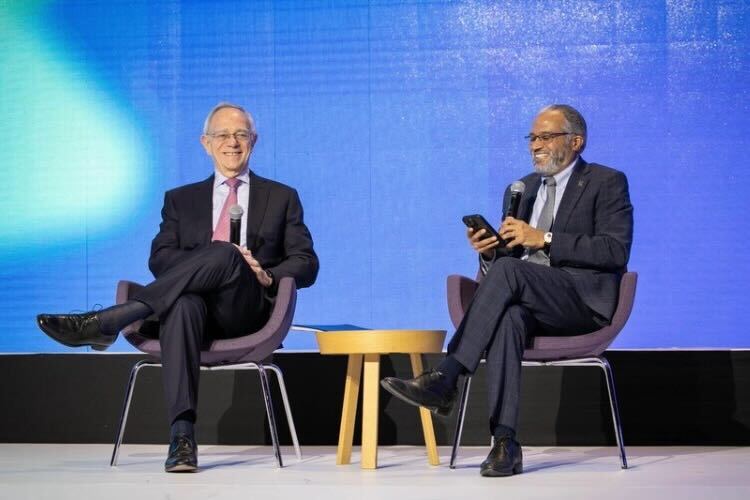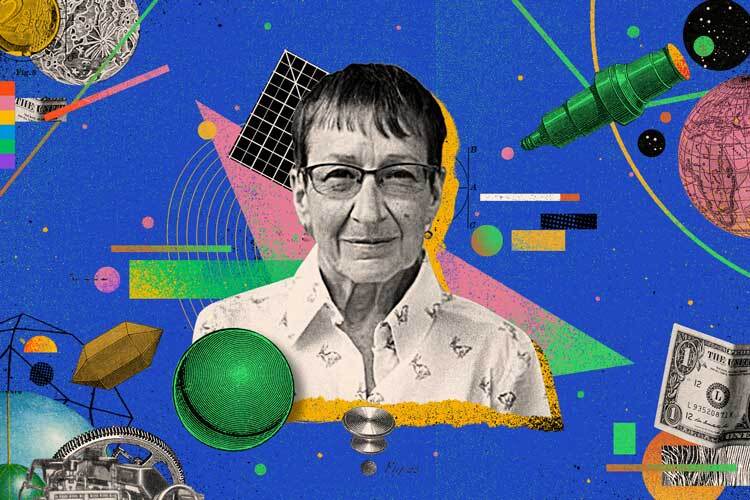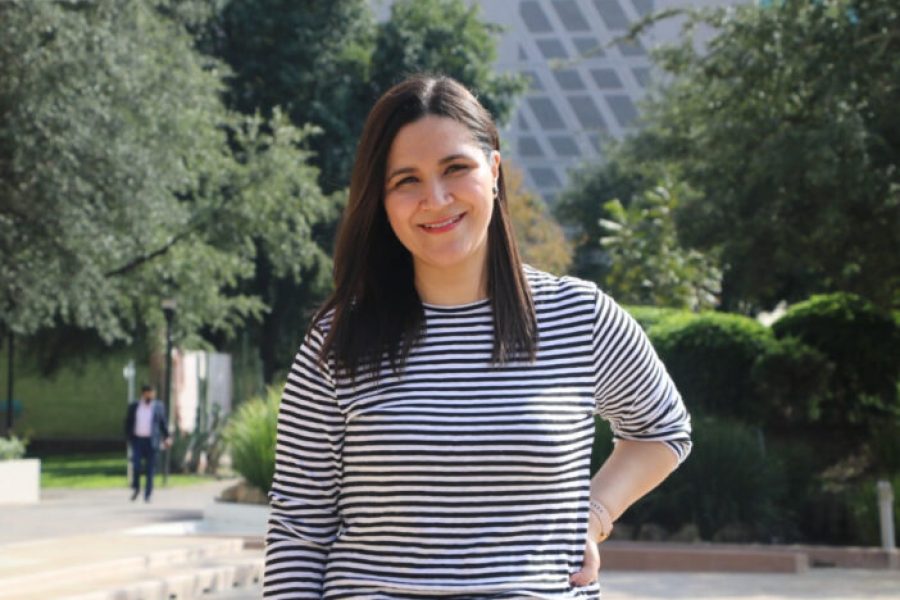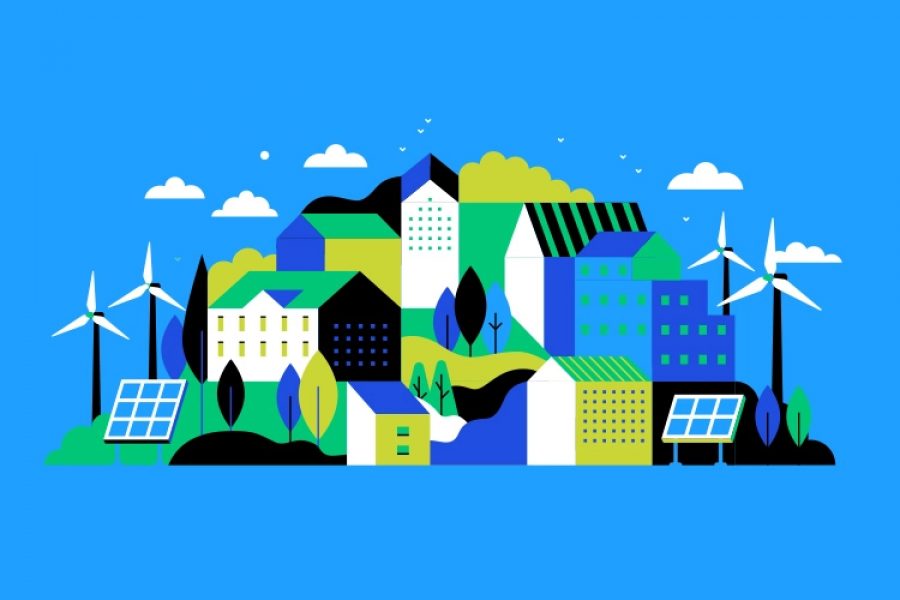Rosanna Bonasia discovered her passion for mathematics since childhood. And 13 years ago, she left Italy to move to Mexico, expanding her horizons and deepening her knowledge to prevent the damage caused by natural disasters.
She is convinced that mathematical models can help us coexist better with nature and react to a flood, earthquake, volcanic eruption, or tsunami.
Growing up in Bari, a coastal city in southern Italy, made her close to Mount Vesuvius, Mount Etna—the most active and tallest volcano in Europe—and Stromboli that led her to pursue a career in Volcanology.
In addition to a master’s degree in Geological Sciences, she holds a master’s in Computational Fluid Mechanics and a Ph.D. in Earth Sciences. She is a Research Professor at the Department of Sustainable and Civil Engineering at Tec de Monterrey and a member of the Water Center for Latin America and the Caribbean.
Math models predicting Natural Disasters
In Mexico, Bonasia found a second home—a country that allows her to do what she loves and also has vibrant colors and colleagues who always greet her with a smile. She learned to speak Spanish on her own, driven by the need to solve everyday problems and communicate with friends.
With a charming Italian accent, Bonasia tells me she plans to continue her research for a long time. When she stops working, she will return to her father’s countryside to spend her old age.
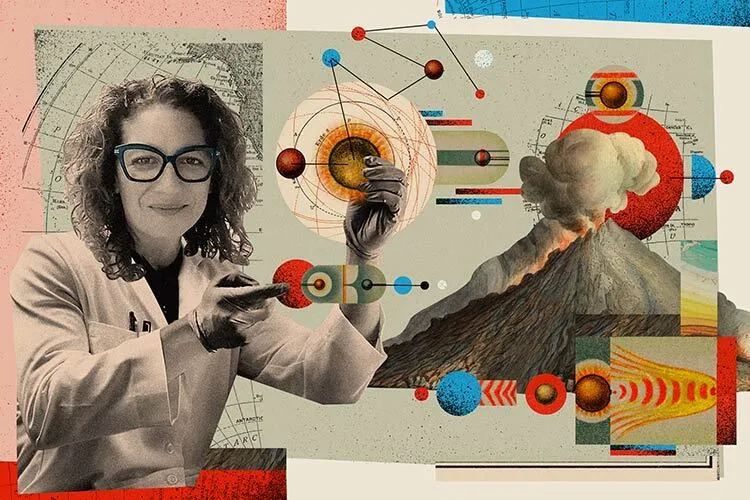
What brought you to Mexico and Tec de Monterrey?
In 2010, I arrived to Querétaro. Thanks to a postdoctoral scholarship at the Center for Geosciences at UNAM, to develop a numerical modeling project to update the hazard map of Popocatépetl. These models calculate the dispersion, trajectory, and concentration of volcanic ash particles in the atmosphere.
In 2015, I moved to Mexico City after obtaining a Conacyt Chair at the National Polytechnic Institute, where I worked on projects applying supercomputing for the analysis of damages caused by floods and tsunamis and also worked with renewable energies.
In 2023, I joined Tec. I work on calculating risks determined by natural and engineering phenomena, which was of their interest.
Why did you decide to conduct your research in Mexico?
I completed my postdoctoral research at the National Institute of Geophysics and Volcanology in Naples, and although things were good there, they couldn’t hire me due to budget cuts.
I thought it was time to look for something outside my comfort zone. I needed an academic comparison with other institutions; in research, it’s crucial to know the work of colleagues outside your country. In the end, I applied in the United States and Mexico and weighed my options. I thought that I would find a society culturally similar to mine in Mexico, and I preferred it.
Before coming to Mexico, did you know what the country would be like?
Even though I come from one of the most dangerous regions in Italy, I was concerned about coming to Mexico because of the news about drug trafficking, kidnappings, and robberies. Also, my adaptation was difficult because I didn’t speak Spanish, and it’s scary when you can’t communicate. But once I succeeded, my opinion changed. I live very peacefully here.
Additionally, I have been amazed by the investment in research projects, unlike in Italy, where there is an extensive and ancient academic tradition, still it needs to be recovered by giving importance to other economic aspects.
Reducing risks of natural phenomena
Why do you consider your research important for society in general and Mexican society?
Because the goal is to find ways to minimize the damage caused by certain natural phenomena, this helps any society.
Volcanic eruptions, earthquakes, floods, and tsunamis can fall within certain predictable limits, but they have a margin of variability due to their random nature. This almost always significantly impacts society and people living in risk zones.
Why did you decide to become a researcher?
Since high school, I have been passionate about studying. I liked thinking about how to solve a mathematical problem; it was a very stimulating challenge for me.
I started studying Geology but faced certain difficulties, especially when we went to the field because I am colorblind. So, I began focusing more on numerical studies and realized I liked research.
Doing research makes me feel free. You decide how to solve a problem, which is lovely. Achieving a result, even after many years, is an enormous satisfaction. Even more so when you think that these results can have social relevance.
Do you think science has a nationality?
Not at all. It has no nationality, color, politics, or gender—it has no limits. It must be based on international collaboration, freedom of expression, data management, and application of methodologies. It cannot be confined to a nation because a scientific results can only be defined as such if they can be reproduced universally.
Tec de Monterrey: A new home
What has it been like being a researcher at Tec?
I’ll be honest. A new world has opened un for me here. Before coming here, I had trouble accessing research funds; for almost ten years, I had to work with my own resources.
Another very satisfying thing about Tec is confirming the interest and value they give to my work. I’ve participated in conferences, proposed projects, and they’ve facilitated doing research for me in every possible way.
I had never worked so much, but I feel satisfied very with my work.
What do you think of Tec’s students?
They are students who work hard, even though the subjects I teach are quite complex and require a strong background in mathematics and physics. When I was a student in Italy, I was theoretically well-prepared, but in practical terms, I was lacking. Here, I see students who can tackle challenges. They are problem-solvers.
How is your relationship with other researchers at Tec?
They treat me with sympathy and respect as if they have known me forever. There is a positive atmosphere that I was not accustomed to. The empathy they have, the willingness to support you—I haven’t seen it in other places. Since I arrived, I have been in contact with many researchers who wanted to work with me.
Mexican colors
What do you like most about Mexico?
It is a country with so many contradictions, just like Italy—I hate and love them at the same time. Mexico has allowed me to conduct research, and I will always be grateful for that. When I think of Mexico while in Italy, the first thing I think about is its colors: they brighten me up.
But it also has its things. I get outraged seeing specific problems that could be solved with a little common sense.
Do you plan to return to Italy at some point?
I miss my family more than anything, but I have no plans to leave Mexico for now. I am happy and want to take advantage of the opportunity I have to eventually do research at MIT, which is my life’s dream; I think Tec de Monterrey will help me achieve it. Afterward, I want to spend my old age in Italy. When the time to work ends, I want to return to my town, to my beach and to my father’s land.
